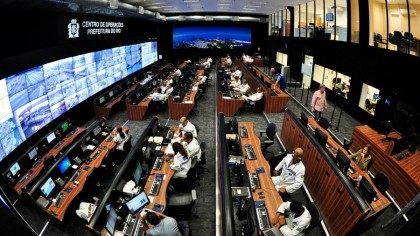Are smart cities inevitable or do tech-filled towns need careful planning?
Also – do we really need smart cities?
Do governments need to get involved in smart cities?
The devices, the sensors and the software will come from private companies innovating, but smart cities need infrastructure – and that needs planning. "Governments and city councils must play a leading role in crowdsourcing innovative ideas from IT suppliers, app developers, citizens and their constituents," says Ben Morris, project manager at NTT DATA, which has just helped deliver a two-year intelligent transport system for Exeter Council and Devon County Council with Imtech, Vaisala, Black Swan and the University of Exeter, to reduce traffic congestion.
"As cities across the UK expand and thrive, local government and councils must be ready to capture and analyse the data collected," says Morris. "Once combined with open source data like weather and GPS, patterns can be identified and smart solutions can be implemented … if the UK wants to boast some of Europe's smartest cities, government support will be critical."

The need for regulation
Government-sponsored pilot projects are helpful, too, as in Copenhagen where the Loop City Initiative connects local councils for the collective launch of new technology such as intelligent street sensors.
"These pilot projects can help smart city startups test their products, prove traction, and gain further funding," says George Johnston, co-founder of IncuBus London, who also thinks government regulation is paramount.
How about the autonomous car that forgets to apply the brakes? No thanks. Or the knock-off hover-board that explodes? "Considering that's a smart mobility solution in its own right, responsibility lies with non-profit organisations like government to ensure safe production," says Johnston.
Some systems will be too important for private industry to manage. Johnston adds: "Governments should also provide the backbone IoT infrastructure, independent of public networks, similar to the current traffic light systems."

How does the workplace fit in?
If integrated transport is largely about making rush-hour work better in cities, the working hours of people once they get to the office are just as precious a resource for the smart city.
Are you a pro? Subscribe to our newsletter
Sign up to the TechRadar Pro newsletter to get all the top news, opinion, features and guidance your business needs to succeed!
"Time is a valuable resource that should be maximised efficiently using new technologies," says Johnston. "AI and big data can streamline and even replace human effort where needed, creating these efficiencies."
The quantified self is also coming to the office. "As well as efficiencies, smart city tech also delivers better experiences for workers," adds Johnston. "Capturing key data on employees can provide unique insights to form the environment around them," he adds, suggesting that the screen brightness of a computer could adapt to the cycle of day and night to reduce eye strain.
Meanwhile, Bluetooth beacons enable valuable 'where's my colleague?' apps. There'll be no hiding in Starbucks downstairs anymore…

Do we need smart cities?
We need to use technology to make cities more efficient. Why? Because cities are growing massively. By 2050, over seven billion people will live in urban areas. "Fundamentally, a smart city uses IT to enhance the quality of life for its occupants, and can manifest itself in a number of ways, whether that be energy management, traffic and transport management, or government services," says Morris.
The smart city is independent of the Internet of Things, and it needs to be nurtured and planned – including by governments – if it's not to become a corporate free-for-all of walled gardens and unreliable, incompatible devices. No city will become smart by accident.
Jamie is a freelance tech, travel and space journalist based in the UK. He’s been writing regularly for Techradar since it was launched in 2008 and also writes regularly for Forbes, The Telegraph, the South China Morning Post, Sky & Telescope and the Sky At Night magazine as well as other Future titles T3, Digital Camera World, All About Space and Space.com. He also edits two of his own websites, TravGear.com and WhenIsTheNextEclipse.com that reflect his obsession with travel gear and solar eclipse travel. He is the author of A Stargazing Program For Beginners (Springer, 2015),
